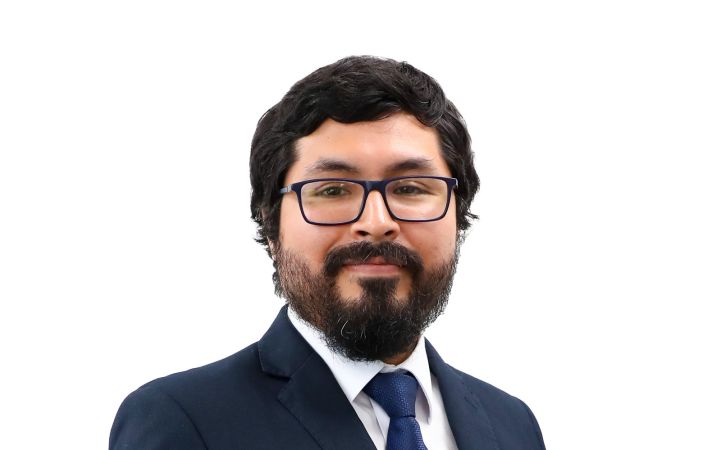Paulo José Porta Bedón, Director, Dirección de Control de la Contaminación y Sustancias Químicas
Lima, Peru
Paulo Porta, Director of the Pollution and Chemical Substances Control Directorate at the Ministry of Environment, Peru, and his team have played a key role in the formulation of the Ley de Gestión Integral de Sustancias Químicas in Peru, as well as its regulation. His unit deals with two main branches: pollution control and chemicals management. It is in relation to this second area that Paulo has participated in UNITAR training courses and has worked hand-in-hand with specialists from the Institute.
In addition to applying the international conventions on chemicals management, such as the Strategic Approach to International Chemicals Management (SAICM), and the Basel, Rotterdam and Stockholm Conventions, Paulo’s unit gained more interest in chemicals management in 2016 after the publication of the Environmental Performance Assessment of Peru, a report produced by the Organization for Economic Co-operation and Development (OECD) and the UN Economic Commission for Latin America and the Caribbean (ECLAC). The follow-up of the report’s recommendations led the unit to lead the process of formulating the law relating to chemicals management in 2019 when Paulo was a technical specialist of the unit.
Since 2020, Paulo has worked closely with UNITAR on issues related to chemicals management. This collaboration began with his participation in an online course offered by UNITAR about the UN Globally Harmonized System (GHS), the Purple Book, for which UNITAR provided scholarships for some of the unit’s specialists involved in the drafting of the law. This programme helped Paulo and his colleagues to better understand the application of international standards in the management of chemicals, which was fundamental to the formulation of the law. In addition to the technical knowledge gained on the course, Paulo highlights the importance of establishing contacts and collaboration networks, which has allowed Peru to receive technical advice and support in the implementation of regulations related to chemical management.
Following the training, UNITAR has provided advisory services by deploying international experts in the field of chemicals management, first for the discussion of the drafting of the law, adopted in 2023, and now for the proposed regulation of the law. Paulo highly appreciates the opportunity to discuss with international specialists the unit’s progress in the regulation of the new law. Paulo and his team have also received support from the United Nations Environment Programme (UNEP) through the Special Programme, but Paulo distinguishes UNITAR’s role in expanding its participants' networks to promote more participatory processes. For example, through UNITAR, the Pollution and Chemical Substances Control Directorate started working with the Swedish Chemicals Agency (KEMI).
Some of the challenges encountered along the way for Paulo and the team have been the availability of training courses in Spanish and the limited number of non-English speaking experts in the subject, as well as the need to adapt international standards to the national context, especially for law implementers. One recommendation would be to organize a certified training of trainers with a focus on chemicals. However, Paulo appreciates the technical assistance and continued support provided by UNITAR, which has also enabled him to expand his professional networks.
The collaboration between Paulo and UNITAR has been important in strengthening his capabilities in chemical management and has contributed to his professional development. It has also contributed significantly to the development of sound chemical regulations in his country.


